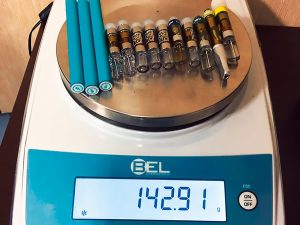The American fast-food giant McDonald’s has won a lawsuit against a city that introduced a packaging tax supported by over 100,000 people, after a court ruled that its bid to protect the environment was illegal.
The ruling deemed the tax on single-use packaging invalid, despite reusable packaging already being used by the fast-food giant in other countries, including the United Kingdom and France.
The Administrative Court of the south-western German state of Baden-Wuerttemberg declared the Tuebingen packaging tax to be ineffective and illegal, siding with the owner of a McDonald’s fast-food joint in the picturesque university city yesterday (Wednesday, 30th March).
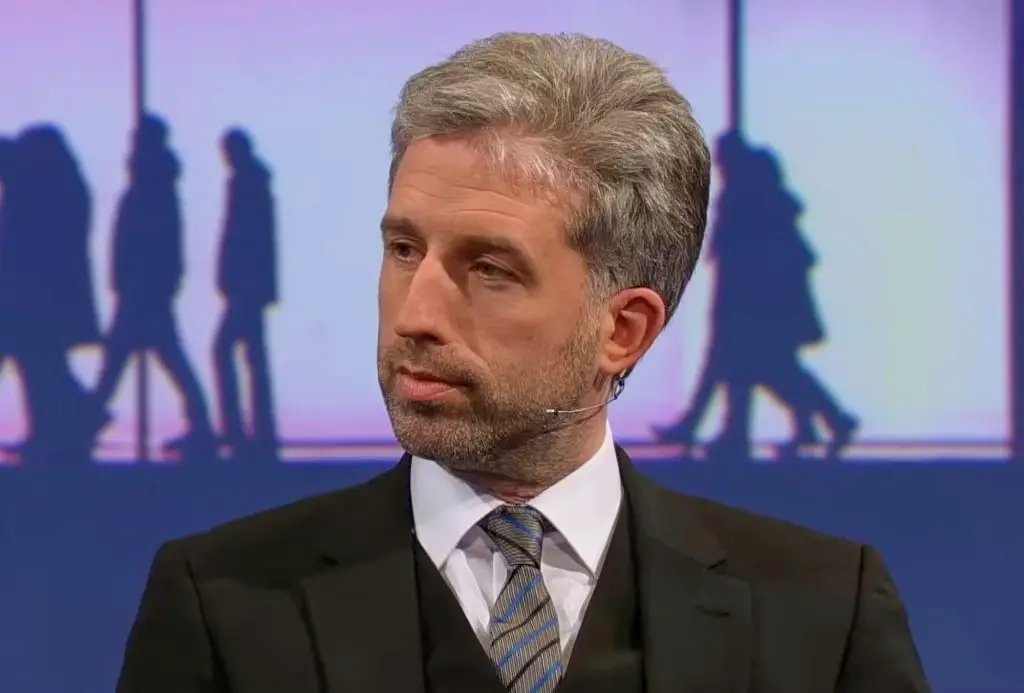
The court thus upheld the lawsuit filed by the unnamed owner of the Mickey D’s restaurant. The court was of the opinion that the “consumption tax on one-way packaging” in Tuebingen violated federal waste legislation.
Newsflash obtained a statement from the Administrative Court of Baden-Wurttemberg, which said that the Administrative Court had decided that the packaging tax was “invalid”, but “the reasons for the judgment are not yet available”, with the court adding that an “appeal to the Federal Administrative Court is permitted”, but it was to be “raised within one month”. It also said that the “full judgment with reasons is expected to be available in April”.
McDonald’s was suing the picturesque university city after its Lord Mayor, Boris Palmer, 49, championed a disposable packaging tax that came into effect on 1st January 2022.
The American company was slammed for suing the German city over its new municipal tax on disposable packaging, but McDonald’s said the move could raise prices, forcing less-well-off customers out of their restaurants.
City officials, however, argued that the new tax was aimed at forcing companies to switch to more sustainable solutions in a bid to fight climate change and to protect the environment.
The Mickey D’s owner in question was not happy about the new tax and sued to stop it, leading Environmental Action Germany (DUH) – an organisation that has been campaigning to protect nature for over 40 years – to accuse the fast-food giant of attempting to sabotage efforts to protect the climate and the environment.
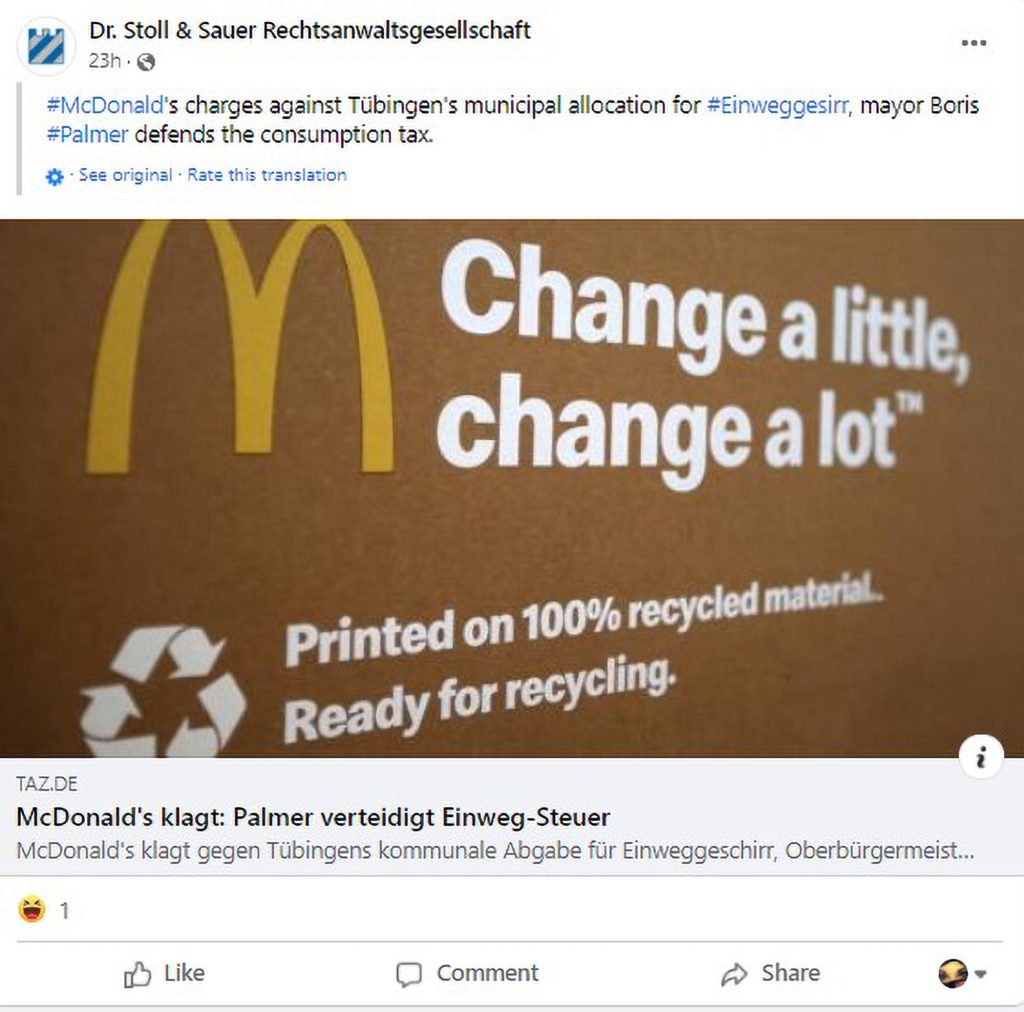
The DUH was said to have collected nearly 100,000 signatures from local people to support its cause, with one group of supporters reportedly staging a protest in front of the courthouse during the trial.
DUH Managing Director Juergen Resch, 62, had previously said that the fast-food chain had been blocking urgently overdue switches to environmentally and climate-friendly reusable alternatives.
Resch, along with Palmer, presented several reusable packages that he said McDonald’s uses in other countries, such as France and the United Kingdom.
Mayor Palmer, who is a politician for the Greens, had also previously said that the tax appeared to be working, noting that the city’s rubbish bins had remained “surprisingly empty” since the introduction of the tax.
He said: “I spoke to the waste collection people: the impression that everyone has confirmed is that the rubbish bins are surprisingly empty.”
This led to local media outlets labelling the disposable packaging tax a success. Resch also labelled Tuebingen’s new tax as a role model that other cities should follow.
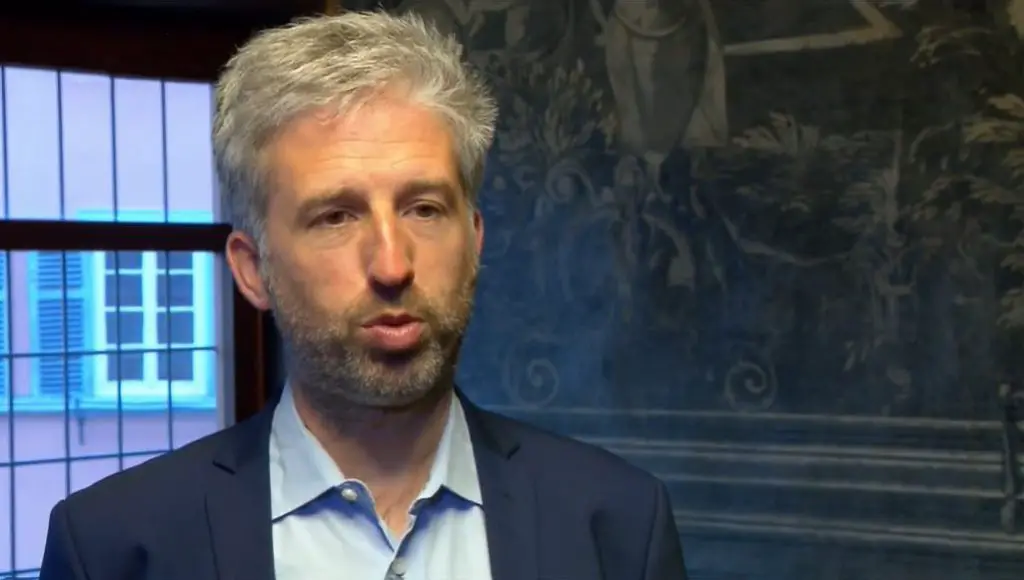
He said on Tuesday: “Anyone who builds their business model on the destruction of the environment should rethink their business model.”
But the owner of the Tuebingen branch of McDonald’s filed the complaint with the administrative court in Mannheim over the packaging, and she was reportedly supported by McDonald’s, which argued that a national solution was necessary instead.
The unnamed entrepreneur, who reportedly acknowledged that she bore some responsibility to make a significant contribution towards conserving resources and reducing packaging waste, considered, however, that the tax in Tuebingen was disproportionate.
She said: “If I pass the price on to the customers, those on a tight budget will no longer be able to come. If I bear the costs myself, it’s at least a six-figure amount a year.”
The fast-food giant reportedly added: “There cannot be local, isolated solutions and special routes for each of the more than 10,000 cities and communities in Germany.”
The owner of the Tuebingen branch of McDonald’s argued that the waste tax was a violation of federal waste law.
The packaging tax stated that EUR 0.50 (GBP 0.42) needed to be paid for each disposable beverage container or disposable food container, with an additional EUR 0.20 (GBP 0.17) required for each disposable cutlery set. The tax allowed for a maximum of EUR 1.50 (GBP 1.27) to be charged per meal.
The taxes were expected to be paid by anyone who sells food and drink in disposable packaging for immediate consumption or takeaway.
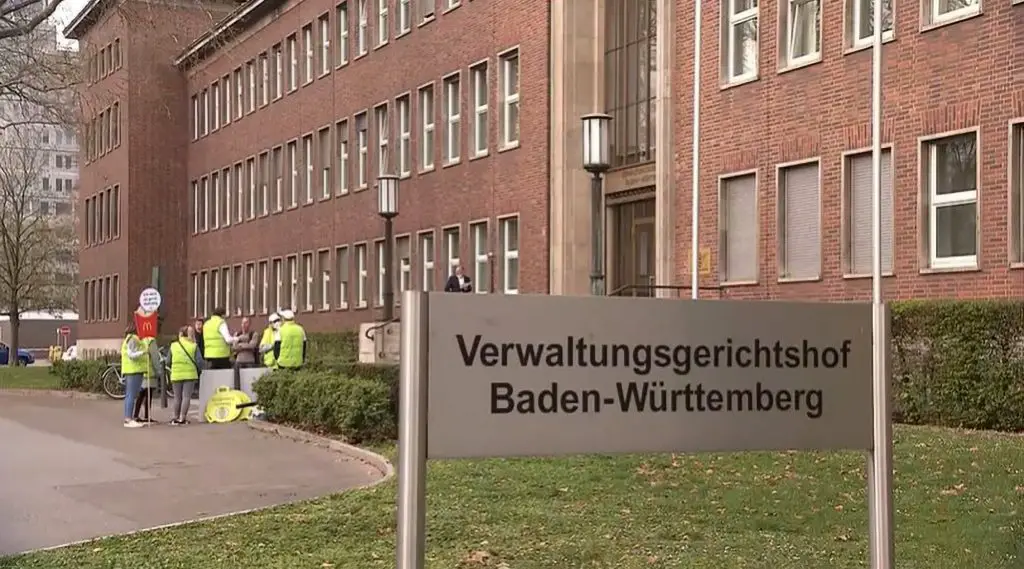
Mayor Palmer, referring to a ruling by Germany’s highest court last year, said: “The Federal Constitutional Court has written in the record that politicians are not doing enough to protect the environment.
“The issue here is whether a municipality can do more than the inadequate efforts of the state.”
It is currently unclear if the ruling is going to be appealed.


